8 best plants for privacy to provide beautiful, botanical screening for your garden
These are some of the very best plants for privacy, from structural shrubs to flowering climbers
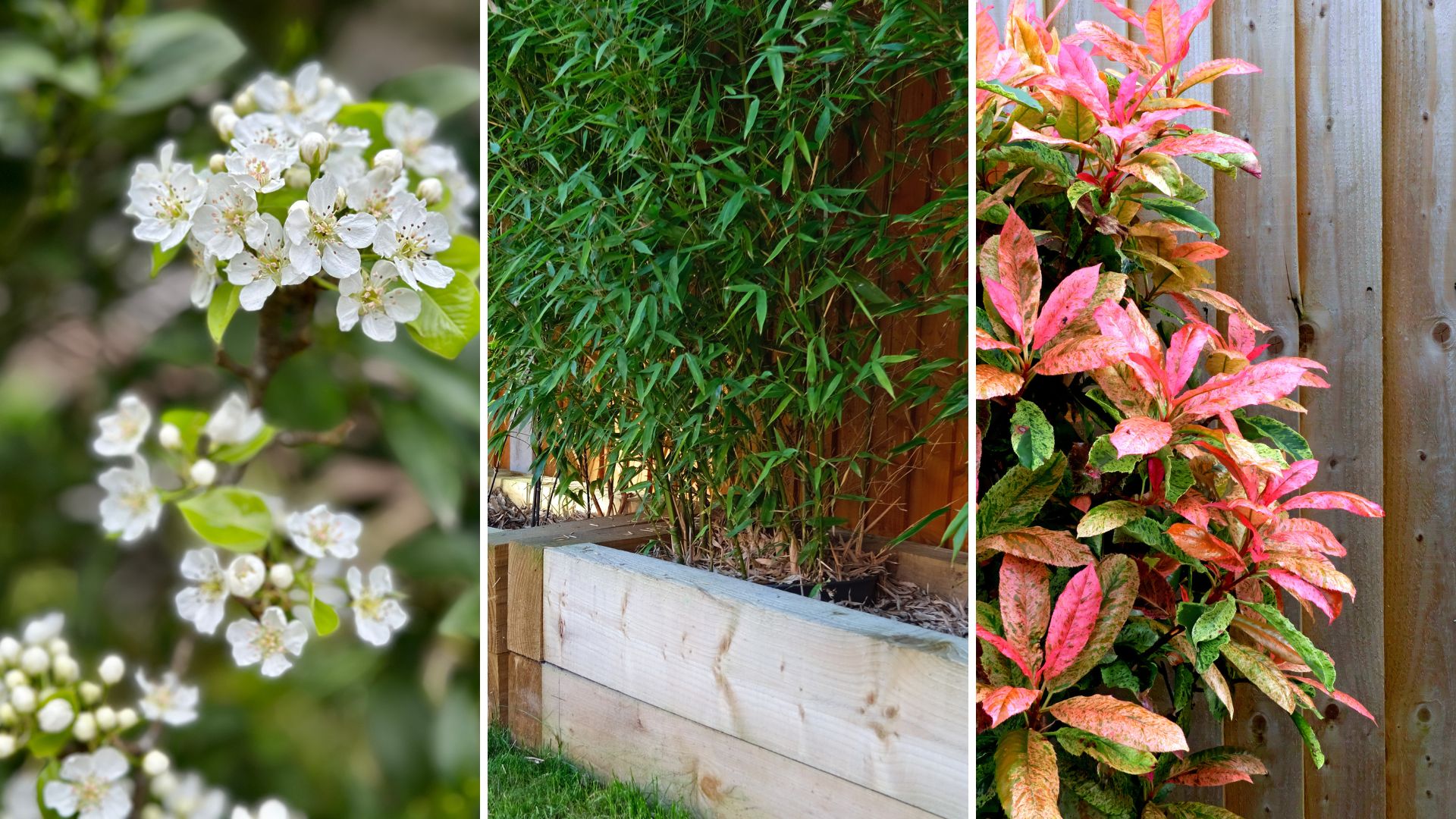

Emily Smith
The best plants for privacy are both pretty and practical. Whether you want to create a secret hideaway at the bottom of your garden, screen the neighbour's view of your patio, or break your space up into enchanting outdoor "rooms", there are plenty of options to choose from.
A fence or wall is often a go-to solution for blocking spaces from sight. However, using plants is often suited to more relaxed garden trends. It's also better for wildlife – many shrubs and flowers will attract birds, beneficial pollinators, and other creatures.
A botanical boundary is also ideal for smaller spaces, as even a plant in a tall pot can provide an effective privacy solution – the perfect way to block a neighbour's view on a budget.
Below, you'll find eight expert-approved privacy plant choices to help you find the perfect option for your space. There are plenty of tips on growing them, too.
8 of the best plants for privacy – easy options to grow in your garden
Dobbies’ horticultural director, Marcus Eyles, says, "There are a whole host of fantastic plants that can be used. Mature, larger plants will be more expensive but provide instant results, whereas younger plants can be nurtured and grown over time for a more cost-effective approach." These include some of the best plants for a pergola to welcome a blanket of coverage.

Marcus joined Dobbies over six years ago, directing the horticultural team across the UK and spearheading the project that won the RHS Sustainable Garden Product of the Year Award at the RHS Chelsea Flower Show 2022. He has over three decades of experience in the horticulture industry and a passion for spending time in the garden year-round.
1. Star jasmine
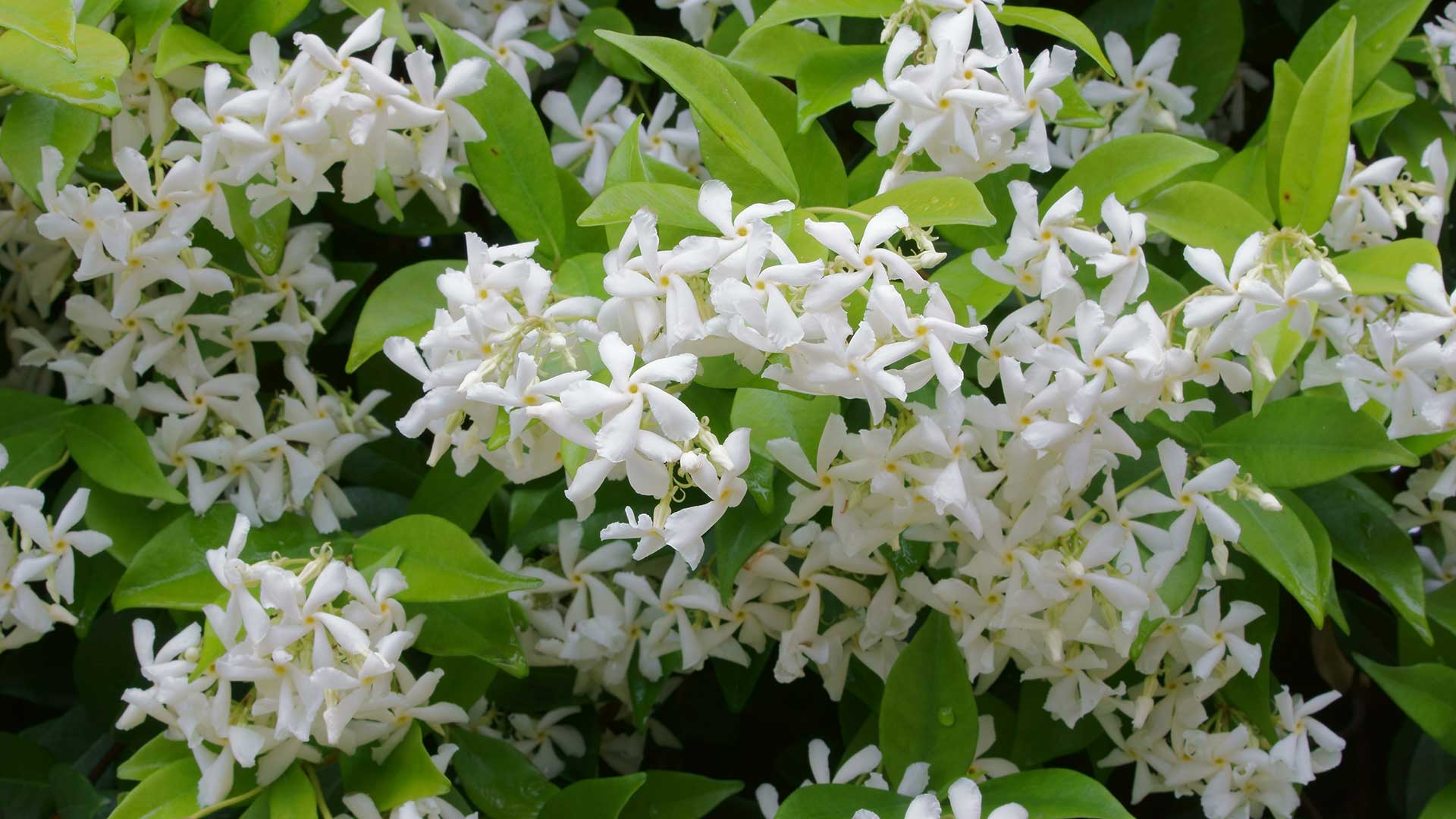
Star jasmine has fragrant summer flowers
Charlotte McGrattan of Hillier Nurseries and Garden Centres says, “If you're looking for a plant that can provide privacy, fragrance, and beauty all in one, Trachelospermum jasminoides, also known as star jasmine, is an excellent choice and one of the best climbing plants.
"This evergreen climber produces stunning, white flowers during summer," she says. In winter, its glossy green leaves turn red, she adds. "At maturity, it can grow up to eight metres in height by four metres in spread, making it ideal for creating a large, natural privacy screen."
Sign up to our free daily email for the latest royal and entertainment news, interesting opinion, expert advice on styling and beauty trends, and no-nonsense guides to the health and wellness questions you want answered.
Charlotte calls it a "fuss-free plant", noting how it can easily cling to supports without needing additional help (although younger growth may benefit from being tied in when mastering how to grow jasmine).
She recommends planting it in a sunny, sheltered spot in well-draining soil. "To fully enjoy its lovely scent, consider growing it near a seating area to create a hidden, cosy corner to relax,” she adds. We think it's perfectly suited to the quiet luxury garden trend.
Gardening expert Sarah Raven also recommends this climber as one of the best plants for privacy. She advises giving it a gentle prune to ensure it stays neat. It's slow-growing, she adds, and works best when bought as big as possible.
You can shop for star jasmine plants at Patch Plants from £20.

Charlotte's role involves ensuring that the garden centres are well stocked with the appropriate type and quantity of hardy plants for the relevant time of year. Charlotte works very closely with the Hillier nursery as well as external nursery suppliers to ensure Hillier Garden Centres get the best plants in the right volumes when they need them.
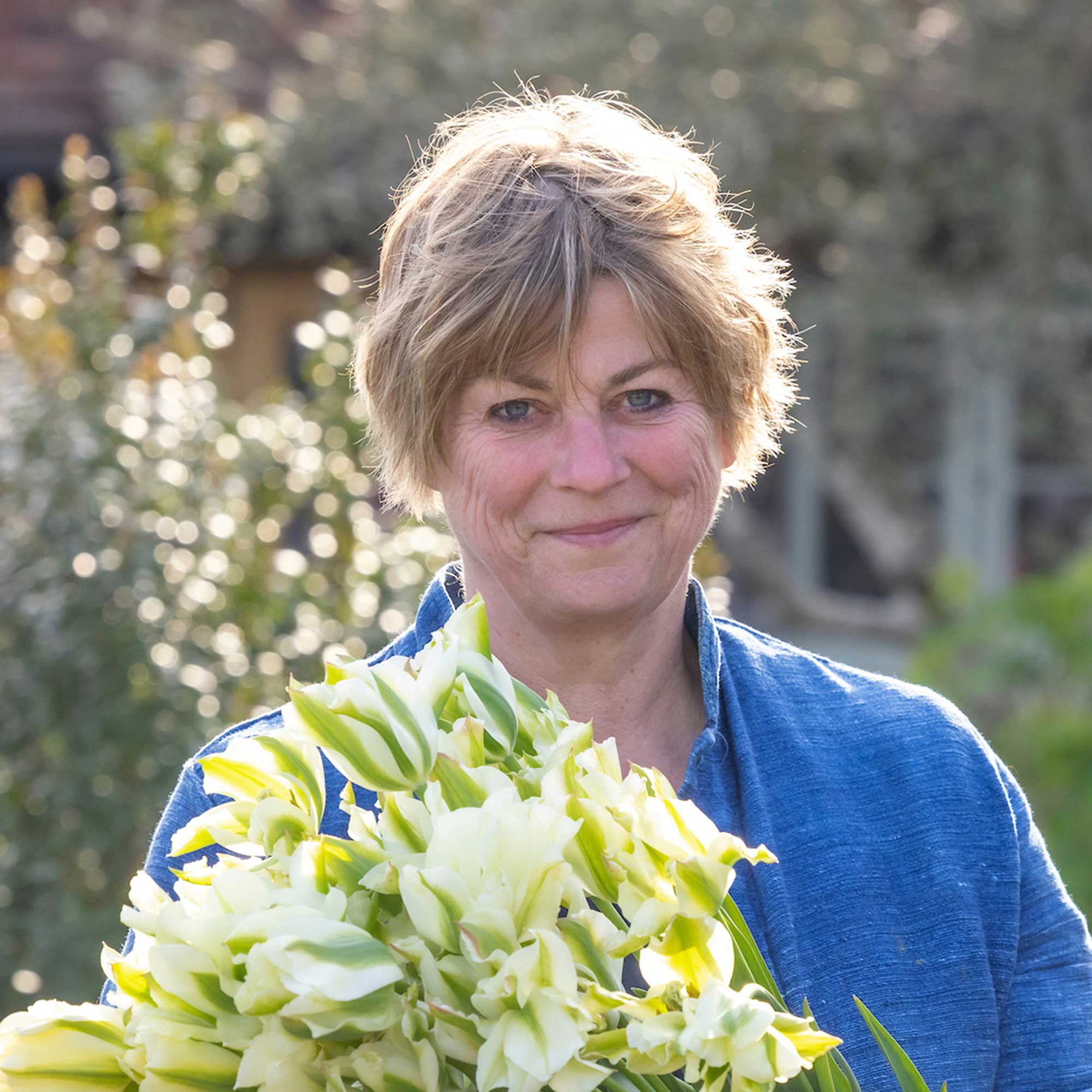
Since the publication of her first book, The Cutting Garden, Sarah has led the way in introducing a new kind of productive gardening. Her aim is to create intense colour and beauty, combined with a practical and easy-to-achieve approach. Her popular gardening podcast Grow, Cook, Eat, Arrange has achieved 4 million downloads. She’s published 15 books and runs Sarahraven.com, which services over 600,000 customers.
2. Bamboo
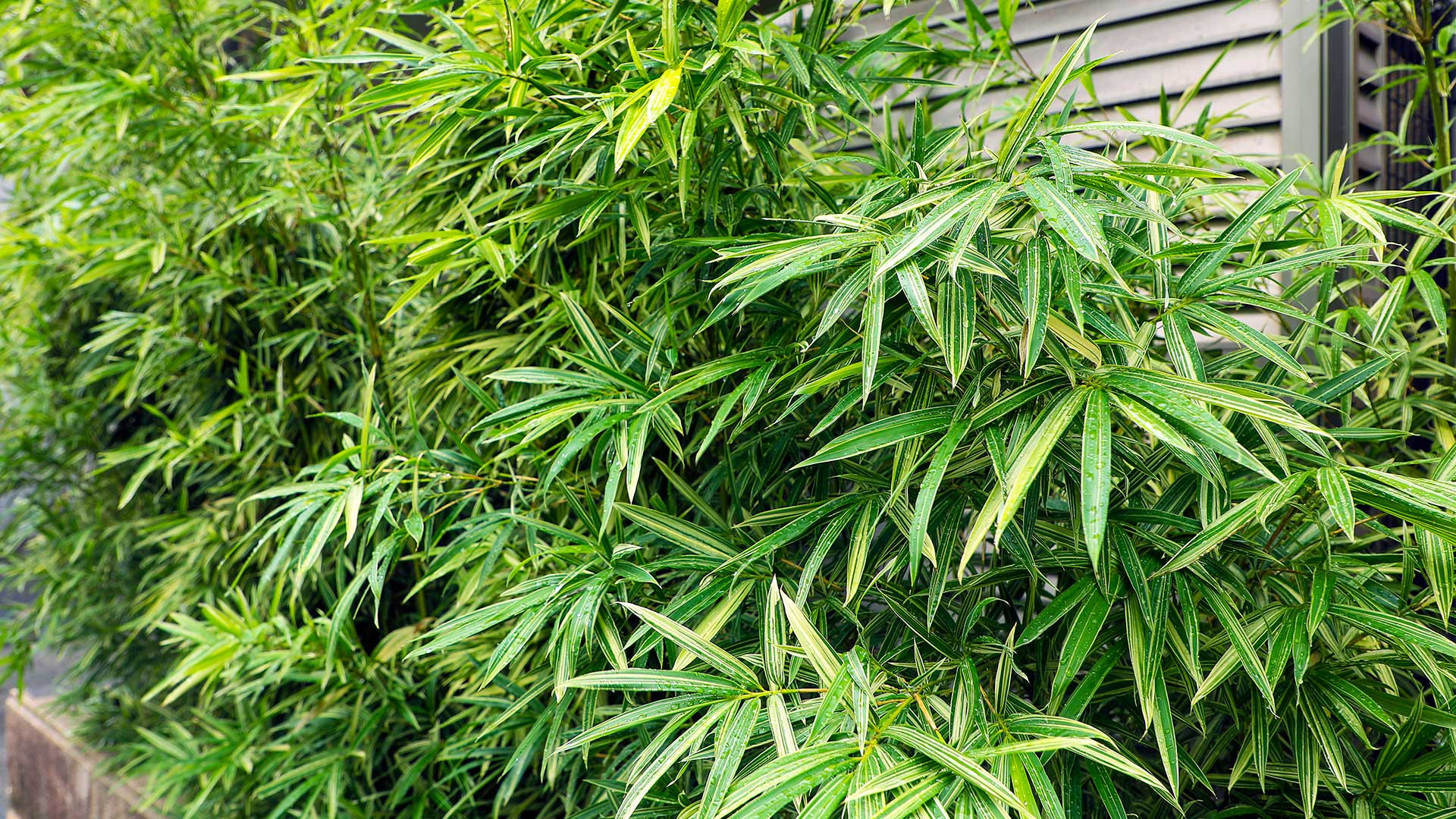
Choose non-invasive types of bamboo to create a privacy screen
Thompson & Morgan’s horticultural expert, Annelise Brilli, says that while grasses are often recommended as a vertical screen, they are late to come into growth, and only achieve full height at the end of the summer when they flower. Growing bamboo in your garden is a better option, she says, as they provide a tall privacy screen throughout the year.
She suggests choosing clump-forming, non-invasive types such as Fargesia "Asian Wonder" (available from Thompson & Morgan) or "Red Fountain". Both offer colourful stems, evergreen texture and movement, she highlights. "Plant them in a position with moist soil which does not dry out in summer and does not become waterlogged in winter."
Marcus recommends bamboo for more modern or Zen gardens. As it's fast-growing, it can make an impact in a short time, he says, adding that it needs to be kept well-watered to establish.
Many varieties of bamboo are also a good option for containers if you're looking for ideas for small gardens or Japanese garden ideas.

Annelise caught the gardening bug from her mother, whose tiny backyard was crammed with a huge collection of plants. As an adult, she had a career change into horticulture, gaining a training apprenticeship with the National Trust at Powis Castle Garden in Welshpool. She is passionate about sustainable gardening and has developed her wildlife-friendly garden, which she has opened as part of the Macmillan Coastal Garden Trail.
3. Beech
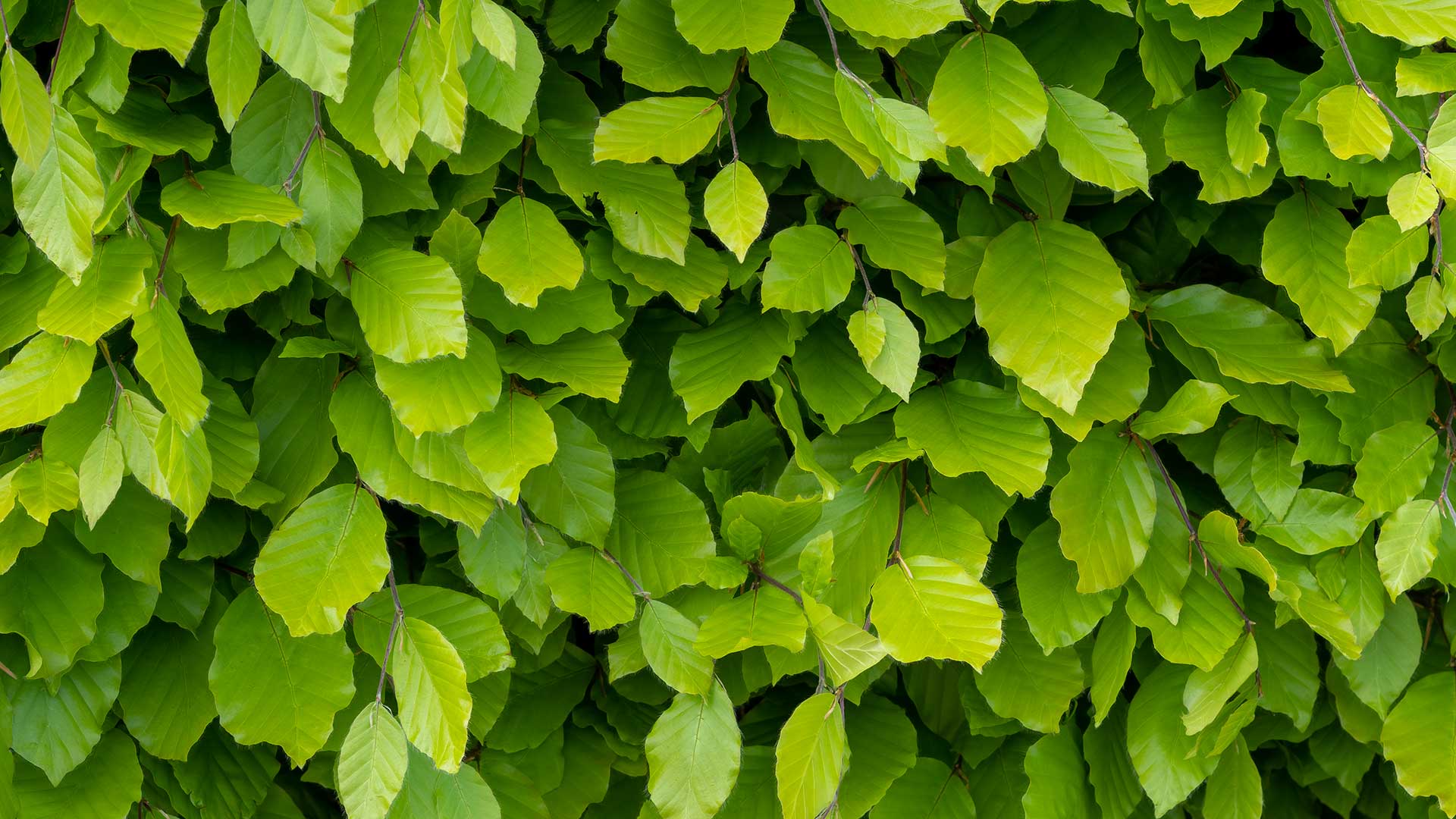
Beech is a popular hedging plant
Morris Hankinson, the founder of Hopes Grove Nurseries, says, "Hedges are so much better than fences or walls – not only are they cheaper and longer lasting but they also filter strong winds, noise, and pollution."
One of the best plant options is a beech hedge, which Sarah calls a "perfect all-rounder".
"I’d suggest using five plants per metre length, setting them out in a zigzag to encourage a thick and bushy hedge that is also ideal for visiting birds and pollinators," she says.
Prune these plants in late summer to keep them looking their best.
The Sarah Raven website has beech hedging plants available to buy.

Morris Hankinson is the founder and managing director of Hopes Grove Nurseries Ltd, the UK’s only specialist grower-retailer of hedging plants. After graduating with a Commercial Horticulture degree from Writtle College, Essex in 1992, Morris established the nursery the same year on a half-acre plot at the 25-acre family farm in Tenterden, Kent. The business soon grew to cover the whole farm and now grows hedging plants across three nursery sites in the beautiful Weald of Kent totalling 130 acres, employing 20 full-time local staff, and serving over 17,000 customers each year.
4. Photinia
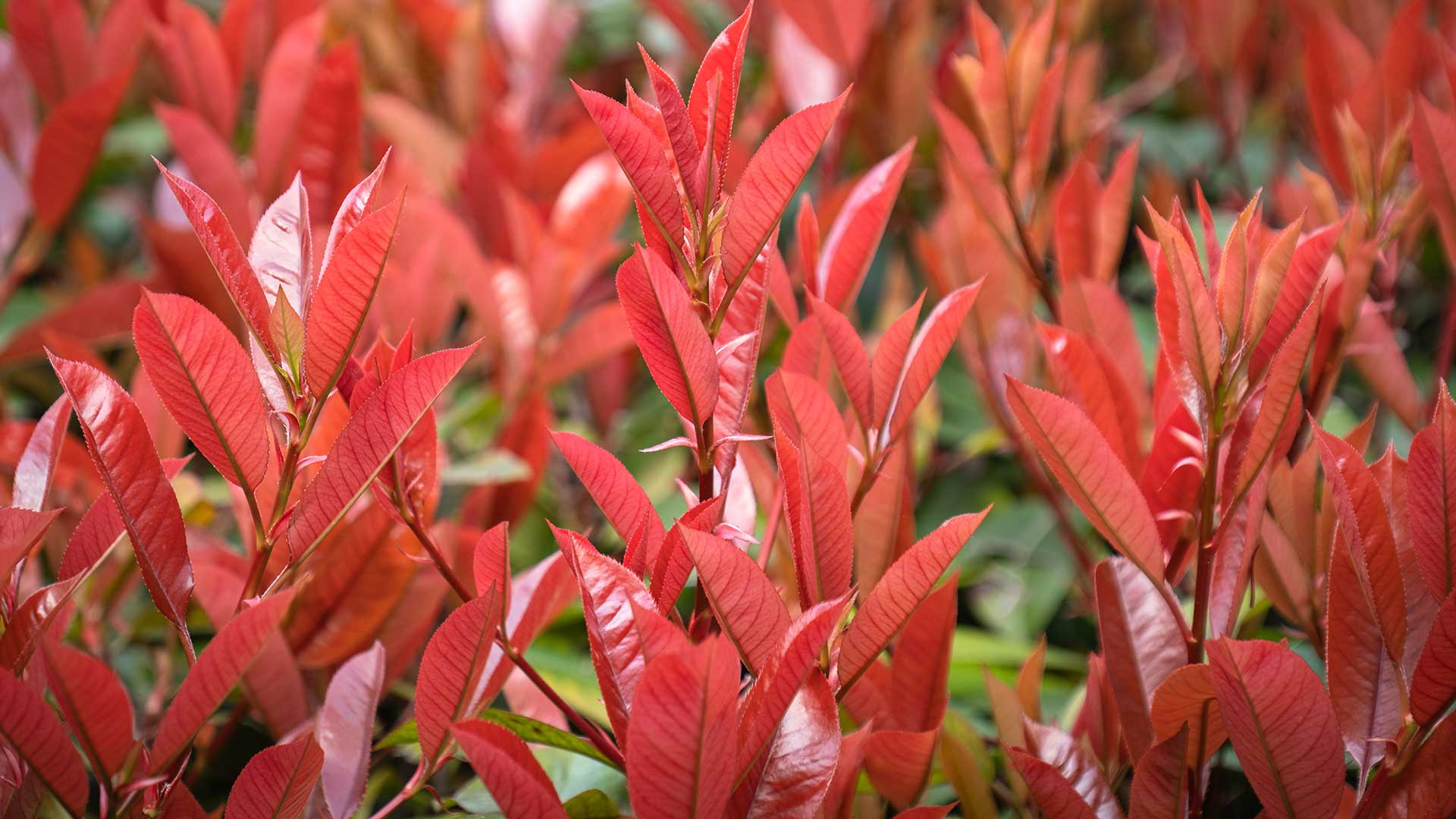
Photinia is well-favoured for its vibrant foliage
Morris says photinia is great for hedging and is one of the fastest growing shrubs – "Their evergreen, oval-shaped foliage is brilliant red when young and older shrubs often produce corymbs of attractive white flowers in early summer."
"Red Robin", available from Hillier, is perhaps the best-known variety. Charlotte says it thrives in well-draining soil and can tolerate full sun to partial shade, making it a versatile choice for various places in the garden.
"Photinia is low-maintenance and hardy," she adds – "ideal for those who want privacy without having to spend a lot of time on upkeep. It requires minimal pruning, which is primarily just for shaping or removing damaged branches.”
Morris adds, "There are some other really great kinds such as ‘Camilvy’, ‘Carre Rouge’ and ‘Dynamo Red’, too."
5. Cup and saucer vine
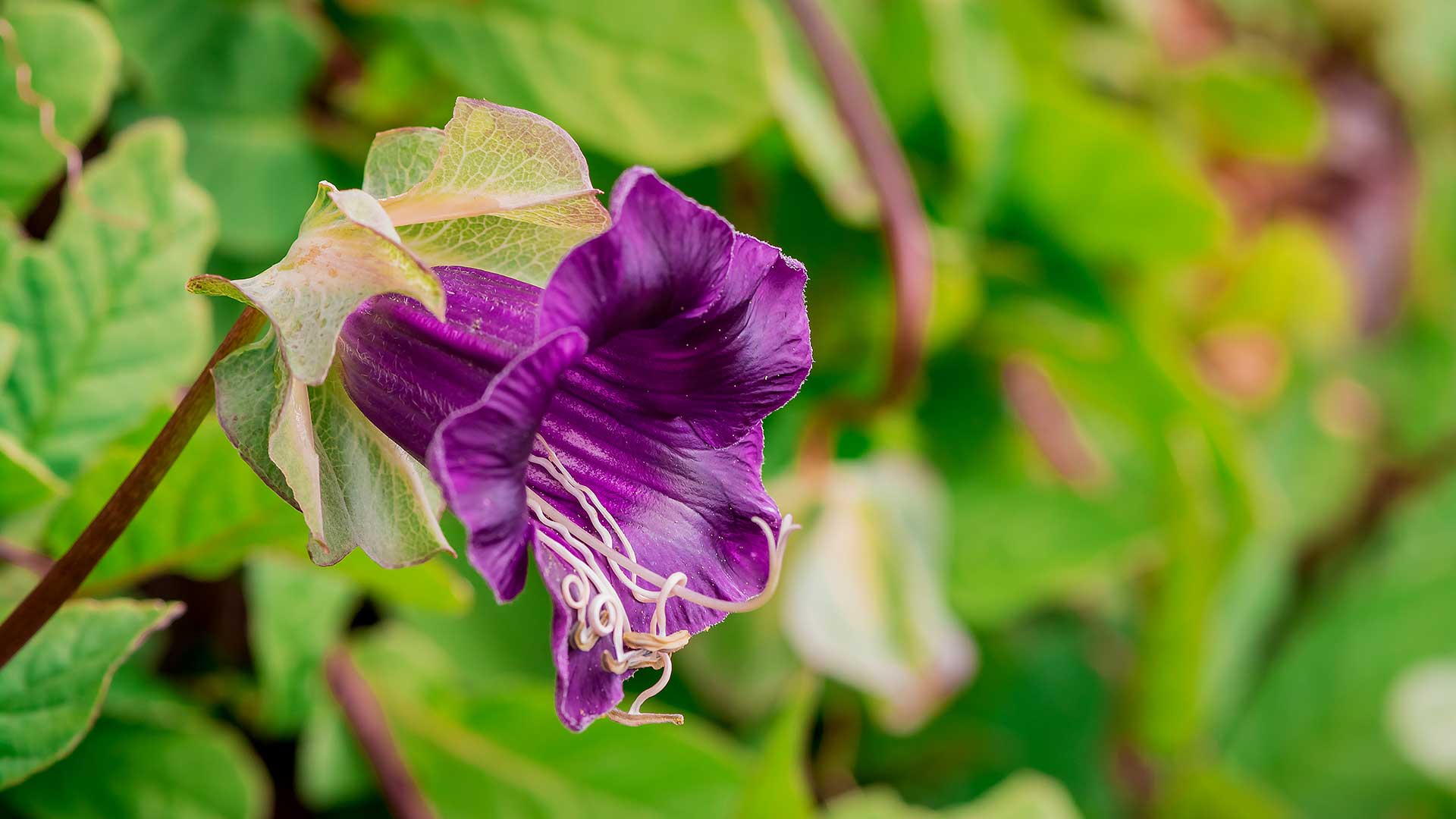
Train this climber up a trellis
Another pretty climber well-suited to cottage garden schemes is the cup and saucer vine, otherwise known as Cobaea scandens (available to buy from the Waitrose Garden website).
Sarah says it's quick to grow and exotic-looking, with buds in green-white, deepening to purple as they age. "It offers great privacy, growing up to a second-storey window if given a climbing frame." She says she often plants them as seedlings.
To make it easier to maintain, train this climber to grow along trellises and other structures, says Sarah, a useful gardening tip.
6. Pittosporum
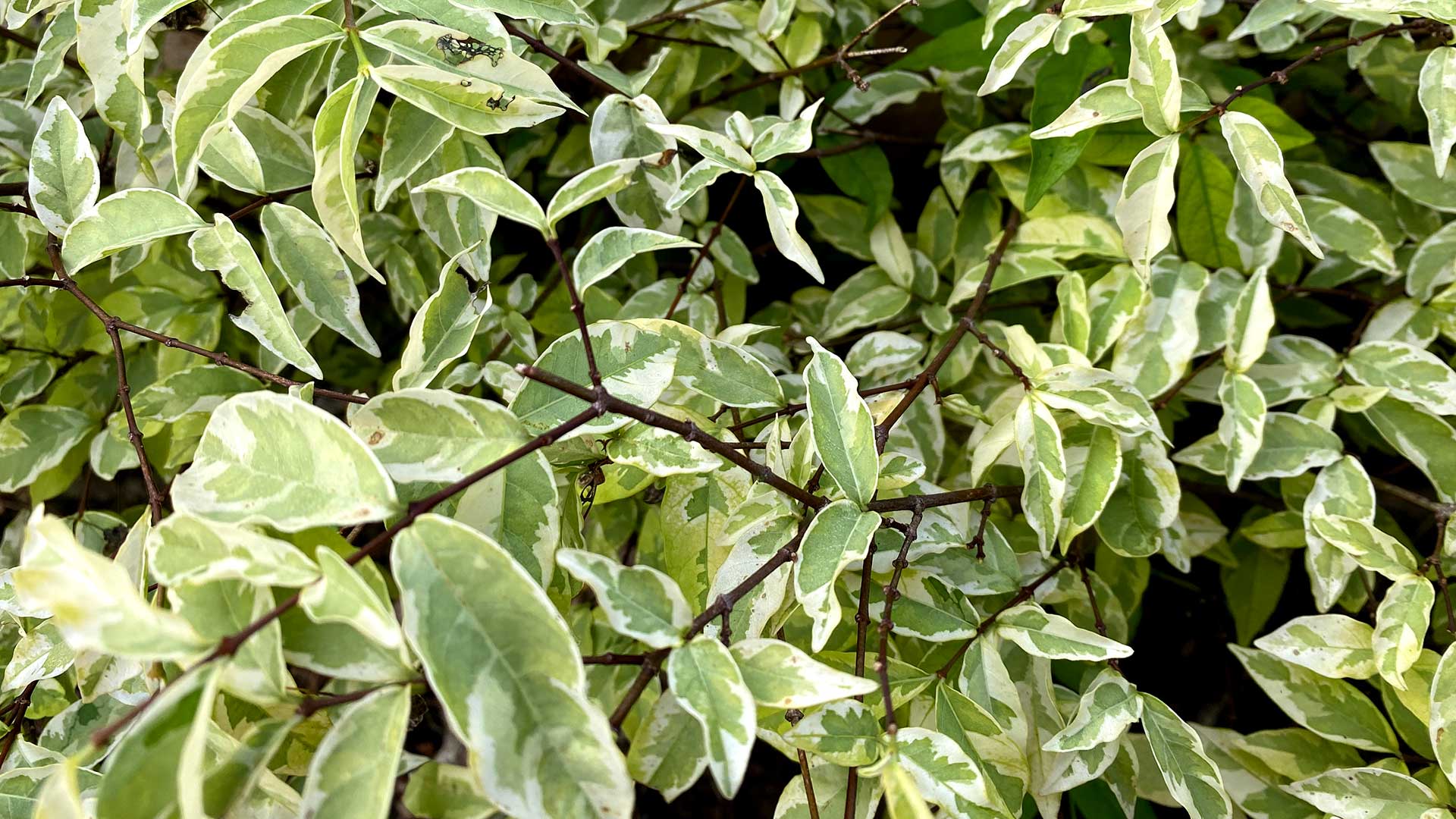
These shrubs suit contemporary spaces well
Pittosporum tenuifolium is a very alluring plant for a garden. I love the structure it brings to a space with its small, elegant, and evergreen leaves, and it makes an excellent screen.
Annelise also recommends it as one of the best plants for privacy. "This resilient shrub has coped surprisingly well on my cold clay but also tolerates shallow chalk," she says. "There is a range of colours to choose from: rich green, silvery-grey, purple and variegated. They clip beautifully and can even be used as an alternative to box."
Compact varieties can be grown in large pots. You can shop a range of Pittosporum tenuifolium from Thompson & Morgan.
7. Hawthorn
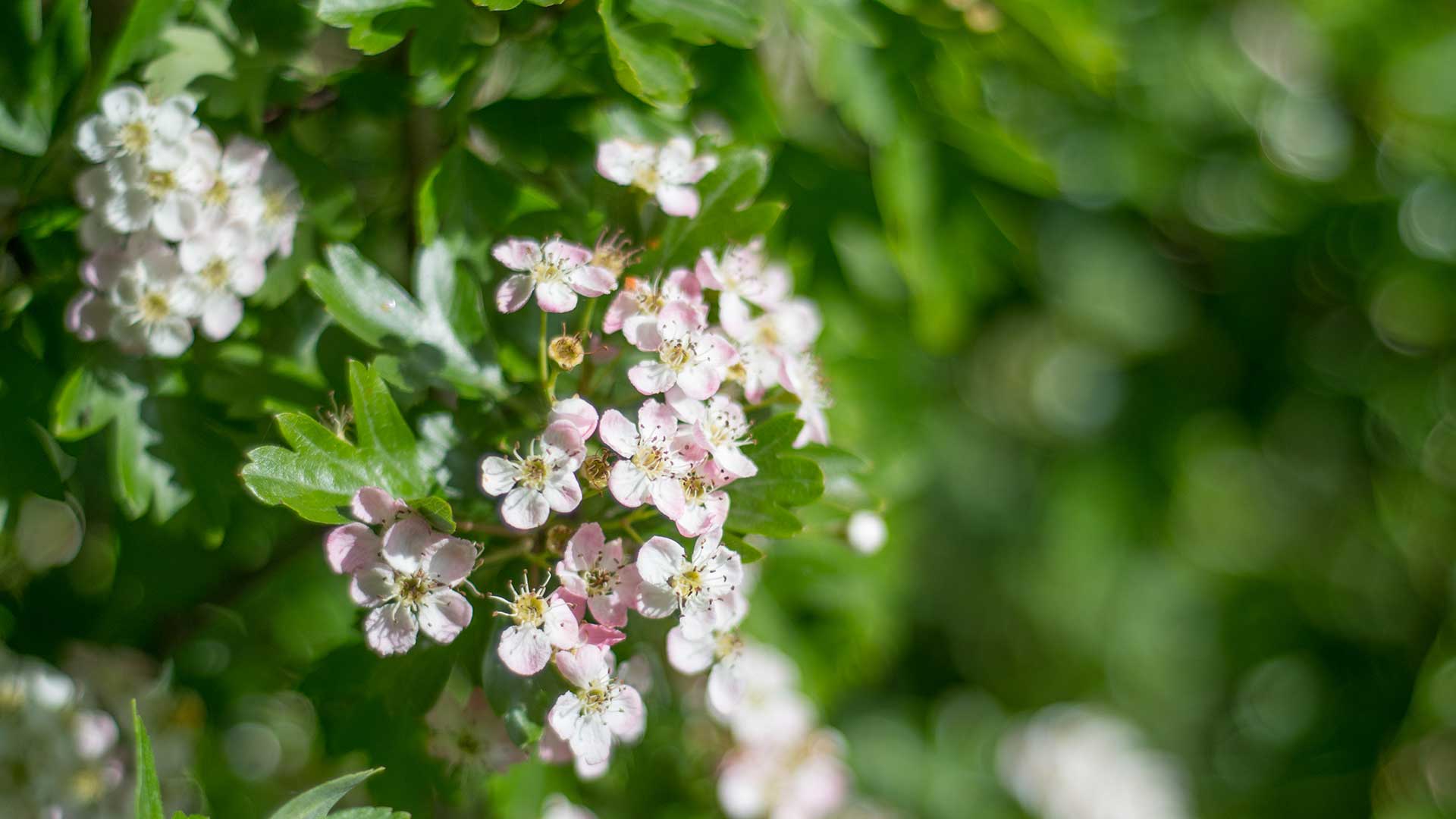
With late spring flowers and autumn berries, hawthorn is great for attracting wildlife
Marcus adds hawthorn – a native hedging plant – to his list of recommendations. He notes how it's popular with wildlife, and also makes an ideal windbreaker. What's more, it's capable of withstanding exposed locations such as coastal areas, he adds.
As it's deciduous, it loses its leaves over winter. However, Marcus points out how the thickly woven branches will continue to provide a good screen and shelter. They thrive in any soil with good drainage, in both full sun and partial shade, he says.
Don't forget about the spring flowers, too – another selling point. Just note that you'll need a pair of gardening gloves, should you wish to prune it, to protect your hands from the thorns.
If you're looking to rewild your garden with the help of a hawthorn hedge, Thompson & Morgan has plants available to buy.
8. Cherry laurel
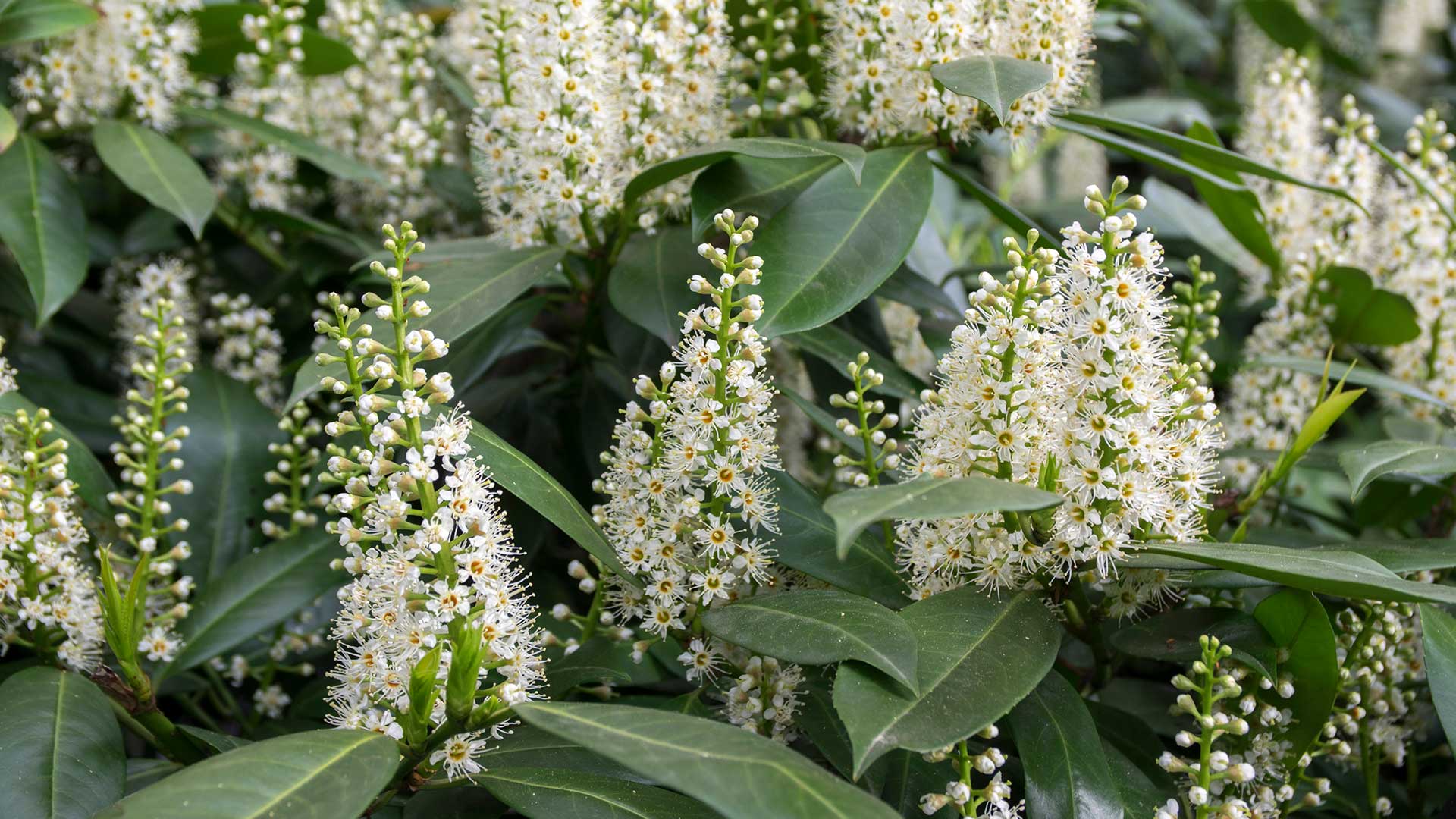
Laurels can create large, dense hedges
Morris says cherry laurel is one of the best hedges for privacy on account of being both evergreen and quite fast-growing. "The large shiny leaves give great coverage and look immaculate all year round," he adds.
It thrives in most soil types and tolerates shade well, Charlotte says. Note that regular pruning is recommended to maintain its shape and prevent it from becoming too unruly, she adds.
"Laurel hedge plants come in a variety of sizes and root types," Morris continues. This makes them a good option regardless of your budget, he says – "another reason for them making it onto many people’s shortlist."
You can buy cherry laurel plants from Crocus.
Looking for an alternative? Try the Portuguese laurel, also available from Crocus. This is a cousin of the cherry laurel with smaller, shiny leaves and reddish-coloured young stems, says Morris. "It’s a great choice for chalky soil – one of the few situations where cherry laurels don’t thrive." Ensure you know your soil type to help it thrive.
FAQs
What are the best plants for near a fence?
Climbing plants are a great option for screening a lacklustre fence and transforming it into a beautiful living wall. Clematis are one of my favourite options – just ensure you read up on how to prune clematis plants to keep them looking their best.
Alternatively, you can plant large flowering shrubs, such as hydrangeas, for a pretty effect. Again, it's important to know how to prune hydrangeas for the best results.
If you're looking to add height, consider opting for pleached trees. Morris says, "For super effective high-level screening, choose an evergreen option, such as photinia, Portuguese laurel, evergreen oak, or holly."
Note that fences often shelter plants from rain somewhat, so be sure to water them in dry periods and add a layer of mulch to help the soil retain moisture.
It's also important to keep your neighbours in mind when adding plants to a boundary line. "The last thing you want when planting privacy hedging, or doing any sort of gardening, is to create conflict with neighbours," Morris says. Communication is key – before any planting takes place.
What is the best thing to plant for privacy?
The best plant to create privacy in your garden depends on lots of different factors. It's important to pick something suitable for the location you plan to plant in, so be sure to assess the soil type and how sunny or shady it is. Remember to research how big plants can grow, to ensure your selected choice doesn't outgrow its allotted space.
Consider planting a few different types, rather than sticking to just one variety. Morris points out how a mix of evergreen and deciduous kinds will not only look more natural but will let in more light to your outdoor space.
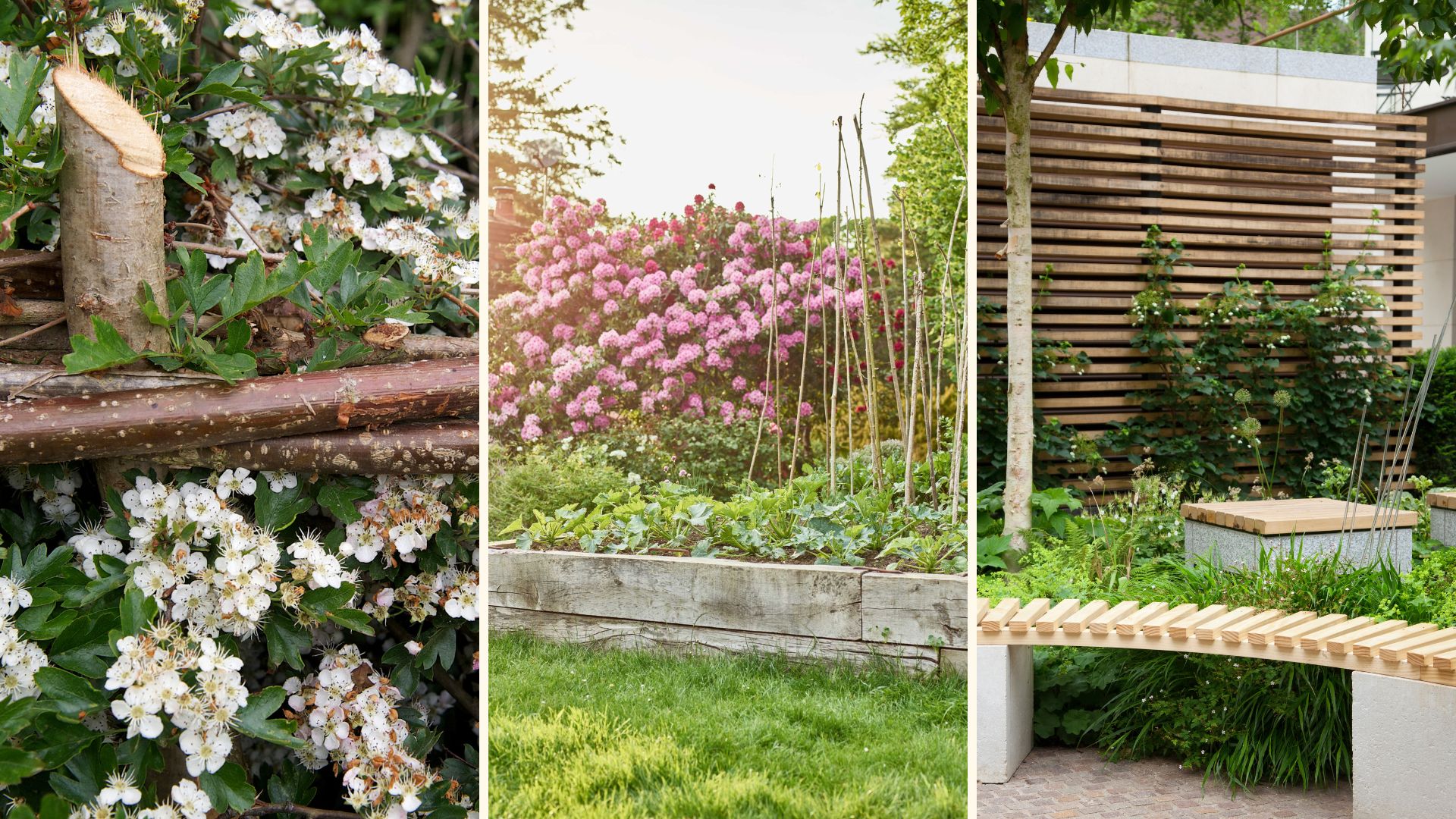
What's the fastest-growing plant for privacy?
If you're looking for a fast solution for privacy that isn't one of the best fence ideas, you can choose a fast-growing plant species. But which one is the fastest?
"Cherry laurel grows at a rate of around 50cm per year, so it can quickly give you the privacy you need in your garden. As it has lovely, dense green foliage, it’s also good at blocking wind and noise. So, cherry laurel is ideal when you want to create a peaceful haven," says Fiona Jenkins, gardening expert at MyJobQuote.

Fiona Jenkins is a UK-based landscaper with over 25 years of experience in the industry. As a gardening expert for MyJobQuote, one of the UK's top trades-matching sites, Fiona offers her expert advice to MyJobQuote's tradespeople and homeowners, and has also been featured as a gardening expert for a range of reputable publications.
What is the best low-maintenance privacy hedge?
Should you be the type to opt for the easiest houseplants to keep alive, you'll probably want an equally low-maintenance garden too. Luckily, some hedge options won't keep you in the garden for too long.
"Photinia is a shrubby, flowering plant with green and red leaves. So, it’s colourful and attractive. It grows easily and needs minimal pruning, making it low-maintenance too," suggests Fiona.
"Yew is another good choice for low-maintenance privacy hedging. It’s evergreen and incredibly dense, but it’s also pest-resistant and not too fussy about soil and weather conditions," she adds.
Shop gardening essentials
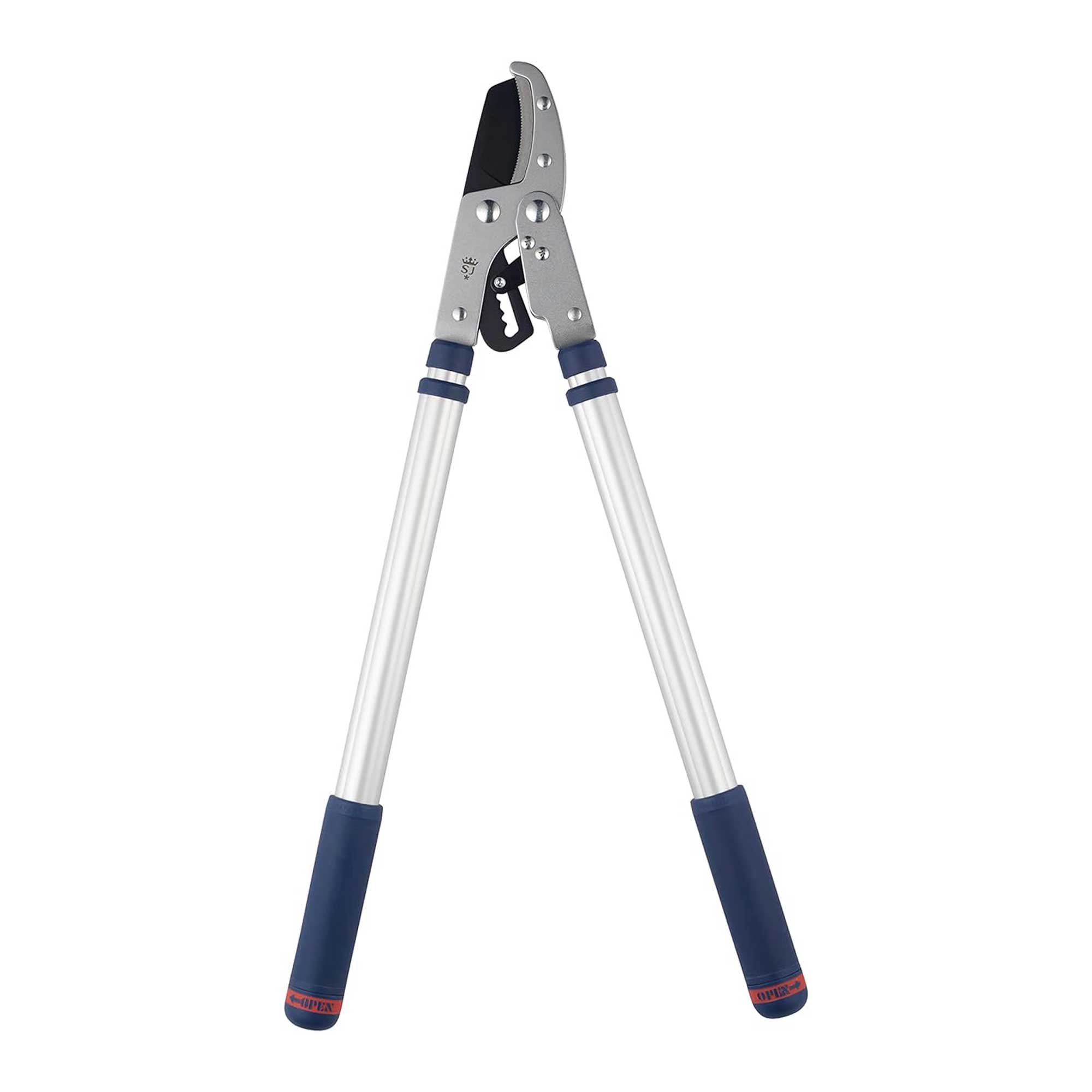
RRP: £24 | Ideal for cutting tougher stems, these loppers have durable, rust-resistant, carbon steel blades and an extendable mechanism. They're a particularly useful tool for taller, more established privacy bushes, trees and plants.

RRP: £9.95 | These gardening gloves have been awarded ‘Amazon’s Choice’, and it’s easy to see why – they’re breathable, comfortable, and stylish.
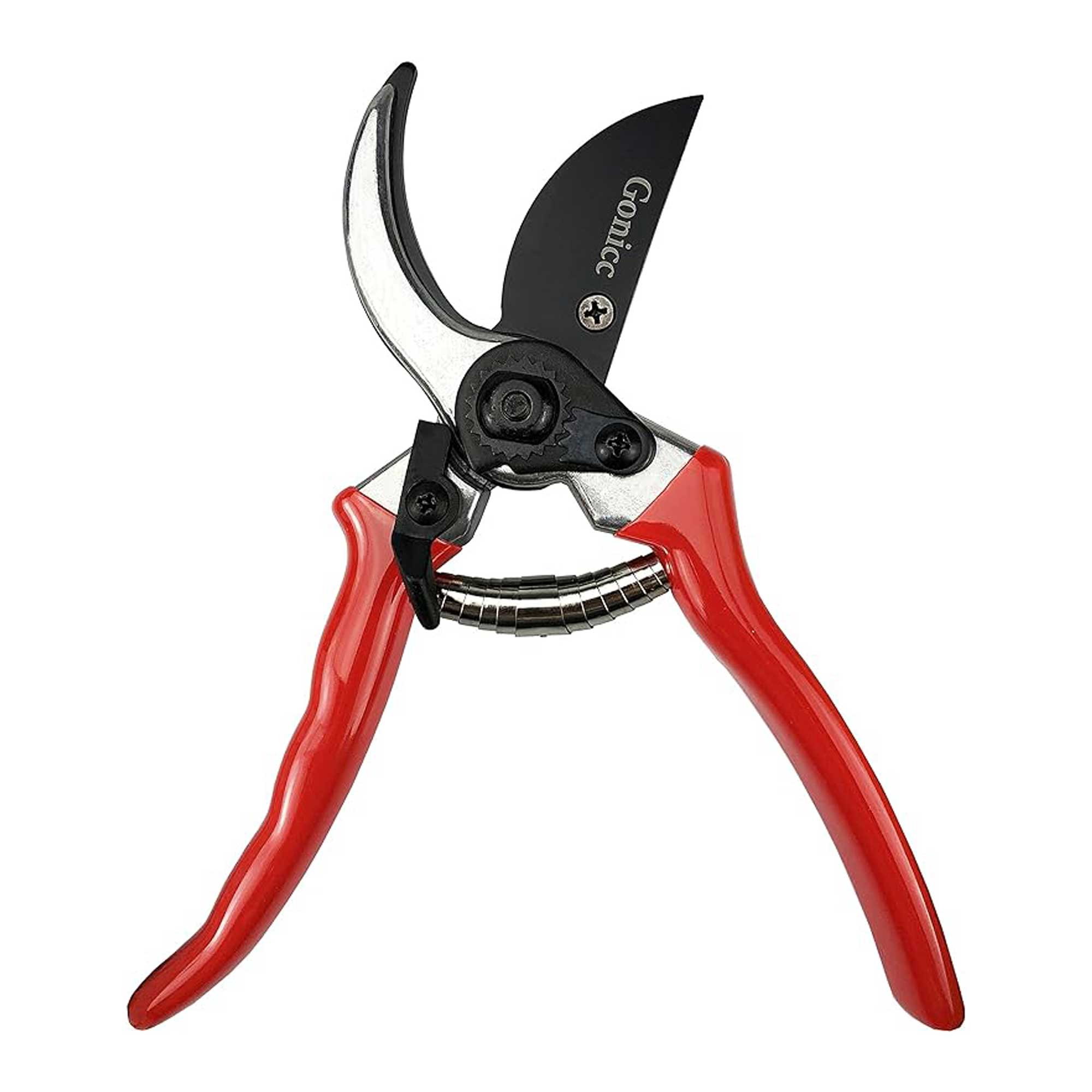
RRP: £11.95 | These popular secateurs feature a carbon steel blade and lightweight, non-slip handles, making precision pruning and deadheading easy.
Adding privacy plants is a great task to tick off when sorting out your garden this spring. It will help turn an exposed space into a hidden haven perfect for hosting summer BBQs.

The garden was always a big part of Holly's life growing up, as was the surrounding New Forest where she lived. Her appreciation for the great outdoors has only grown since then; she's been an allotment keeper, a professional gardener, and a botanical illustrator. Over three years ago, Holly started writing about plants and outdoor living full-time, first for Gardeningetc.com and now for popular lifestyle titles such as Homes & Gardens.
- Emily SmithDigital lifestyle writer